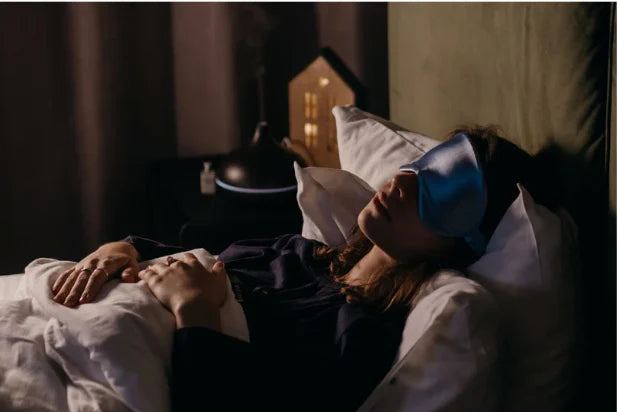There are countless benefits to sleeping in total darkness. Recent studies have shown that sleeping in total darkness can lower heart rate, regulate hormones, lower risks of insulin resistance and obesity as well and reduce the risks of Depression.
It's even believed that sleeping in a completely dark room can increase longevity and has anti-aging benefits as well as lower inflammation, the cause of most chronic diseases.
Anti-aging And Hormone Regulation
Studies have show that cellular regeneration is more active when the body is in a complete state of rest. They've also shown that sleeping with even a moderate a mount of light, equivalent to a street lamp or hall light increases heart rate and insulin resistance preventing the body from reaching a complete state of rest.
Light also has been shown to disrupt Melatonin produce. Melatonin can be argued as one of the most important hormones in the human body. It helps regulate all the other hormones in the body, particularly ones that direct women's menstrual cycles.
Melatonin also regulates the sleep cycle so when it is disrupted or delayed by light it disrupts the sleep-wake pattern preventing the body from reaching that restorative state.
Melatonin also has anti-inflammatory properties. Since chronic inflammation is increases with aging and is the cause of many age related and chronic diseases, regulating melatonin by sleeping in darkness can be particularly helpful for those seeking to prevent these.
Another study showed that exposure to light at night, even in low levels increased the risk of experiencing depression in adults.
Increased Heart rate and Insulin Resistance
Researches at Northwester University found in a study that being exposed to light increased heart rates and insulin resistance compared to those that slept in total darkness.
"it appears that light during sleep is affecting you, even if you’re not aware of it,” says study coauthor Phyllis Zee, M.D., director of the Center for Circadian and Sleep Medicine at Northwestern University Feinberg School of Medicine. “Your subconscious is aware that there’s light and there’s something going on, and it’s keeping you a little bit on watch. Your fight-or-flight system is more activated.”
Elevated heart rate and insulin resistance are risk factors for heart disease and early death. And being able to control these risk factors by sleeping in darkness can increase your longevity.
Obesity and diabetes
A large study of 43,722 women published in 2019 found that those who slept with artificial light had a higher risk of gaining weight and being obese than those who slept in a dark room. Previous studies have linked light exposure at night to a variety of health problems, including type 2 diabetes and some types of cancer.
Sleeping with a sleep mask
Science-backed sources:
Exposure to artificial light at night: A common link for obesity and cancer?
https://www.pnas.org/doi/10.1073/pnas.2113290119
Medical hypothesis: Light at night is a factor worth considering in critical care units.

